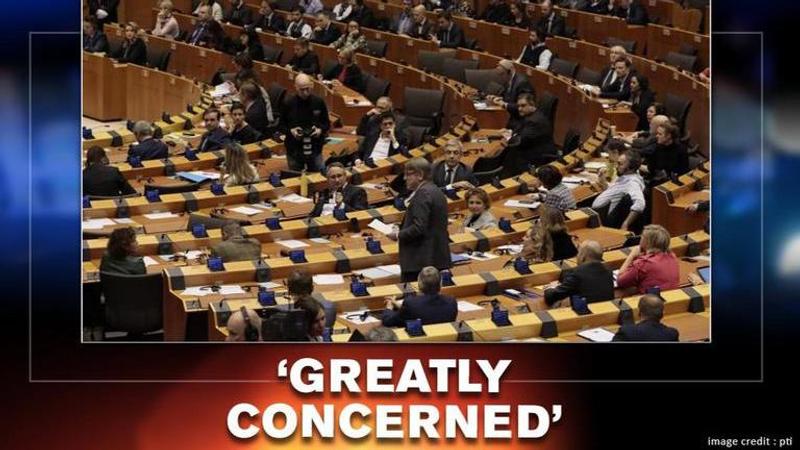Published 16:46 IST, June 20th 2020
EU plans to take China to ICJ if it imposes new national security law on Hong Kong
EU voted in favour of bringing China before the International Court of Justice (ICJ) over its decision to adopt a new national security law for Hong Kong.

The European Union on June 18 voted in favour of bringing China before the International Court of Justice (ICJ) over its decision to adopt a new national security law for Hong Kong. The resolution to file a case against China at the ICJ if the new security law for Hong Kong is applied was adopted in the European Parliament on Friday by 565 votes to 34. China's decision to bring in the new security law in the semi-autonomous region has received international condemnation and has sparked fresh pro-democracy protests in the city.
"MEPs call on the EU and its Member States to consider, in the event the new security law is applied, filing a case before the International Court of Justice alleging that China’s decision to impose national security legislation on Hong Kong violates the Sino-British Joint Declaration and the International Covenant on Civil and Political Rights (ICCPR)," the text of the resolution that was published on European parliament's official website read.
The European parliament further said that it is greatly concerned by the steady deterioration of civil and political rights, and press freedom in Hong Kong and called for an independent and impartial investigation into the police’s use of force against pro-democracy protesters. The parliament also urged EU member states in the Council and the EU Foreign Policy Chief Josep Borrell to address the issue of the national security law for Hong Kong as a top priority at the upcoming EU-China Summit that is scheduled to take place on June 22 via video-conferencing.
Pro-democracy protests
Residents of Hong Kong took to streets to protest against the new controversial national security law, that was approved by the National People's Congress in May. Critics argue that the law will further suffocate the remaining freedoms and autonomy enjoyed by the former British colony. Massive protests in Hong Kong began last year after a China-backed extradition bill was put forward by the city's executive. The bill was later withdrawn but protests continued demanding an investigation into police brutality among other things.
Updated 16:46 IST, June 20th 2020




